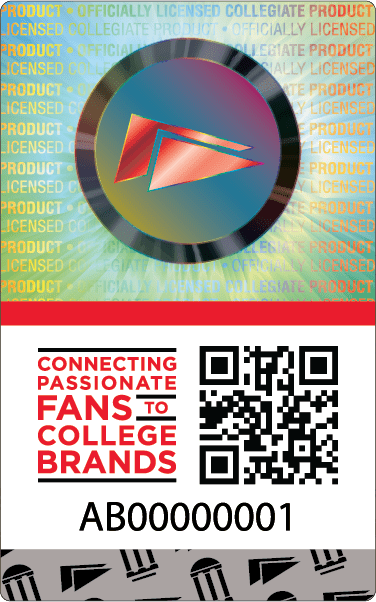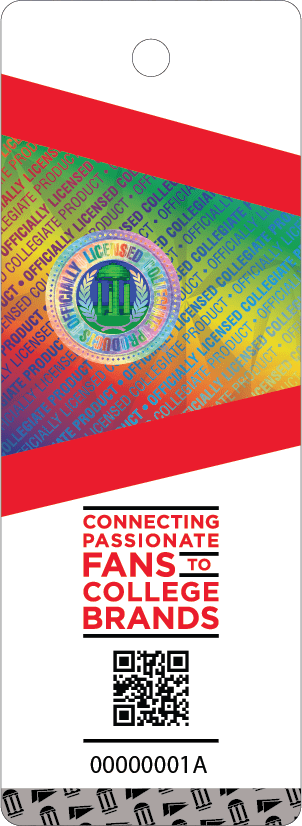Licensing Faqs
Many of the University’s departments, divisions and student groups have developed trademarks to promote their specific group. These marks, however, are used only by these areas and are not available to the general public. Examples of departments with registered trademarks that fall into this category are Alumni Affairs and Niner Nation.
Any unauthorized use of these marks is considered an infringement of our trademark rights and we will take the legal steps necessary to correct violations.
Additional pertinent information:
- University does not license health and beauty products
- University does not consumables
- Cross licensing with other marks may be permitted with an additional agreement
- No use of current player’s name, image, or likeness is permitted on commercial products without prior permission. All University NIL guidelines must be followed
- No reference to alcohol (must have University’s permission), drugs, or tobacco-related products may be used in conjunction with University marks.
- University prefers the use of UNC Charlotte over UNCC. UNCC may not be used unless approved by licensing.
- When producing product featuring Athletics marks, “Charlotte” is preferred if utilizing text as part of the design.
For additional information about trademarked logos and verbiage, please reference the logo sheet.
Yes. UNC Charlotte will not allow its marks to be applied to consumables, health & beauty products, or tobacco related products. For alcohol related products, you must have the University’s permission to use University marks.
Absolutely! But it is important to use the marks correctly. University Communications’ design toolkit provides some tips on how to use marks in accordance with University standards. If you have additional questions, please contact Ryan Honeyman, Creative Services Director.
No! University schools, departments, and affiliated organizations may not assign, sublicense, or modify the name UNC Charlotte or The University of North Carolina at Charlotte or UNC Charlotte or any marks of the University. All products which University schools, departments, or affiliates wish to have produced bearing the name and marks of the University are regulated by the Trademark Licensing Program.
Yes! University schools, departments, and affiliated organizations may use the University’s name or marks in their literature, signage, etc, but must have the design approved prior to publication and use by University Communications. If the school, department or affiliated organization wishes to use the University’s name or marks on items to be given away or used as uniforms, the design must be submitted to the Trademark Licensing Program for approval.
A licensed vendor must be used whether royalties are required or not. Please remember that the University’s marks may not be altered in any way. You may not incorporate the University’s marks with a commercial vendor’s mark.
The UNC Charlotte Trademark Licensing Program is committed to protecting UNC Charlotte’s trademarks and the reputation they represent. We work with CLC Collegiate Licensing Company and law enforcement agencies to enforce our trademark rights. No use of UNC Charlotte trademarks is permitted without the written consent of the UNC Charlotte Trademark Licensing Program or Publications Office. Any information regarding possible trademark infringement should be reported to licensing@clc.com.
Look for the label. Every vendor who is licensed is required to attach the “Officially Licensed Collegiate Products” label shown below. Be sure that the item you purchase is as authentic as your support for UNC Charlotte. And because each licensed vendor returns a portion of the money paid for the item to the University, purchasing only items that are licensed supports UNC Charlotte. Please support the vendors that support our University.


CLC Collegiate Licensing Company is the licensing representative for UNC Charlotte. CLC is responsible for administering the licensing program, including processing applications, collecting royalties, enforcing trademarks and pursuing new market opportunities. Learn more about getting licensed or contact a representative at licensing@clc.com.
There are two types of licenses:
Retail license
Allows a company to produce product bearing the trademarks of unlimited collegiate institutions for sale in designated retail channels, direct to consumer, and university departments and related entities.
Internal license
Allows a company to produce product bearing the trademarks of collegiate institutions for university departments and related entities for internal consumption only. Cannot provide product at retail or direct to consumer.
Not every vendor that applies for a licensed is approved.
Items such as compliance history, accounting history, marketing plan, product/design uniqueness, product quality, and market need/saturation are taken into account when determining whether or not a vendor will be licensed.
Every vendor who is licensed is required to attach the “Officially Licensed Collegiate Products” label.
A trademark is a word(s), logo or package design, or a combination of them, used by a manufacturer or merchant to identify its goods and distinguish them from others (Borchard, “A Trademark is Not a Copyright or a Patent,” 2002).
CLC Collegiate Licensing Company is the licensing representative for UNC Charlotte. CLC is responsible for administering the licensing program, including processing applications, collecting royalties, enforcing trademarks and pursuing new market opportunities. A CLC representative may be contacted at licensing@clc.com.
The symbol “TM” stands for trademark. The symbol “SM” stands for service mark. Both of these are informal symbols that indicate you claim common law trademark rights to a name, or logo. These two symbols are used prior to obtaining full federal registration.
The symbol (R), the phrase “Registered U.S. Patent and Trademark Office,” or the abbreviation “Reg U.S. Pat. & Tm. Off.” denote that the mark has been granted full federal registration. This means that the owner of the mark may prosecute anyone who uses the mark without permission.
Trademark licensing is a contractual relationship under which a trademark owner grants another the right to use a mark, subject to terms of the contract. Trademark licensing does not transfer ownership of the mark (CLC, “Licensing Basics,” 2003).
Departments must go through the Purchasing Department to place an order for these items. The Purchasing Agent will forward information to the Licensing Department and obtain permission. Please be aware that University departments are required to adhere to the same guidelines as commercial vendors.
You may also contact Trademarks and Licensing for more information.
The University allows its marks to be applied to a wide variety of products. Apparel items, i.e. shirts, sweats, hats, scarves, jackets, and children’s clothing items, are the most popular. But our marks appear on many non-apparel items as well. Examples of non-apparel items are golf accessories, key chains, frames, glassware, blankets, umbrellas, jewelry, and notebooks.
However, The University does not allow its marks to be applied on consumables, health and beauty products, or tobacco-related products. For alcohol related products, you must have the University’s permission to use University marks.
A determination as to whether or not an item is acceptable is made at the time the vendor submits a request for a new product approval.
Any mark, logo, symbol, nickname, letter(s), word(s) or combination of these that can be associated with the University qualifies as a trademark.
Any individual or manufacturer wishing to use the marks, logos and symbols of the University must obtain a license. Although departments and student groups affiliated with the University do not need to be licensed themselves, they must use a licensed vendor to produce items bearing the University’s marks. It is typically much easier to work with an established University licensee than to try and license a new product or idea. Both the University Trademark Licensing Program Office and CLC Collegiate Licensing Company can provide you with information on the products produced by all licensees so you can match your needs with the right company. A list of current licensees by product is available on the Licensed Vendor page.